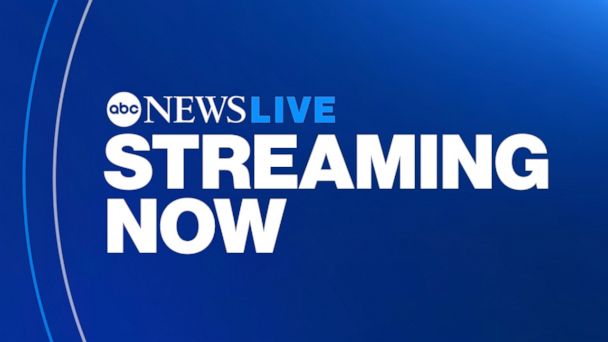Understanding Today's News Players: Who Brings You The Latest Stories?
Have you ever stopped to think about all the different places where our daily news comes from? It's quite something, isn't it? From major global events to happenings right in your own town, a whole collection of organizations and people work to bring you those stories. So, in a way, it's a bit like a huge orchestra, with each part playing its own tune.
You might see headlines from places like CNN, AP News, or even Yahoo News popping up on your screen. Then there are giants like NBC News, ABC News, and NPR, giving us updates on everything from politics to health. These are all, you know, just some of the big names that shape what we read and hear every day.
But it's not just the well-known channels. There are local reports, like that story about the Nashua arrest or the splash pad closure, and even international agencies such as Reuters and Xinhua. So, apparently, figuring out who these "news players" are, and how they operate, can really help us make sense of the world around us. We'll explore that, actually.
Table of Contents
- What Exactly Are "News Players"?
- The Traditional Heavyweights
- Beyond the Big Names: Local and Niche Voices
- The Rise of Digital and Aggregators
- How News Gets to You: The Process of Reporting
- Why Understanding News Players Matters for You
- Spotting Trustworthy Information
- The Future of News: What's Next for These Players?
- Frequently Asked Questions (FAQs)
What Exactly Are "News Players"?
When we talk about "news players," we're really talking about all the different groups and individuals who gather, produce, and share information with the public. This includes a wide range of organizations, from huge international agencies to small, local outfits. They all play a part, you know, in painting the picture of what's happening.
Think of them as the many voices that speak to us every day about current events. Some focus on breaking news, while others dig deep into specific topics. Their goal, in essence, is to keep us informed, whether it's about a major global incident or something happening just down the street. It's quite a varied bunch, really.
The Traditional Heavyweights
For a long time, certain names have been central to how we get our news. These are the established media groups, many of whom have been around for generations. You've probably heard of them, like CNN, for instance, which gives us constant updates on U.S. and world events, weather, and politics. They're a pretty big deal.
- What Colour Does Red And Purple Make
- Kim Kardashian Robot
- Low Fade Comprimido
- Charli D Amelio Feet
- Venture Encoding Ltd
Then there are the news agencies, such as The Associated Press (AP News) and Reuters. These groups collect stories from all over the globe and then provide them to other news outlets. So, in a way, they are the backbone for many local papers and websites. They're like the silent partners, almost, making sure everyone gets accurate information.
Major broadcast networks like NBC News, ABC News, and even NPR, with its audio and podcasts, also serve a huge audience. They cover everything from business and health to pop culture. The New York Times, too, has journalists in more than 150 countries, bringing live news and investigations. These are, basically, the sources many people turn to first.
And let's not forget BBC, which offers trusted reporting on world and U.S. news, sports, and culture. Yahoo News also gathers headlines from various sources, making it a common stop for many. These players, you know, have built up a lot of trust over the years, and they continue to be very important.
Beyond the Big Names: Local and Niche Voices
While the big international and national names get a lot of attention, local news organizations are absolutely vital. Think about that story regarding the Nashua felon or the splash pad closure at Sandy Pond. These are the kinds of specific, community-focused reports that really matter to people living in those areas. So, locally, these are very important news players.
Local outlets often cover events that larger networks simply can't, or won't, because of their broader focus. They keep communities connected and informed about what's happening right outside their doors. For instance, the news about the Los Angeles unrest, with federal agents searching for undocumented people, would have been covered intensely by local media there, providing immediate details. It's a different kind of reporting, but just as essential, really.
There are also niche news players, which focus on very specific topics like technology, health, or a particular industry. They provide in-depth analysis that general news outlets might only touch upon briefly. These specialized sources, you know, help people stay informed about their specific interests.
The Rise of Digital and Aggregators
The internet has changed a lot about how we get our news. Now, digital-first organizations and news aggregators play a huge role. Google News, for example, gathers headlines from thousands of sources, letting you browse different perspectives on the same story. It's a very convenient way to keep up, honestly.
Social media platforms, while not traditional news producers themselves, have also become significant "news players" in how information spreads. People often discover breaking stories through their social feeds, even if the original content comes from a traditional outlet. So, in a way, they act as massive distribution channels. This means, basically, news travels incredibly fast.
This shift means that many more voices can share information, which is good in some respects. But it also means we need to be a bit more careful about what we read. The speed of information sharing is, you know, a double-edged sword, sometimes.
How News Gets to You: The Process of Reporting
Behind every news story, there's a process. Journalists, photographers, and editors work to gather facts, verify information, and then present it clearly. This often involves interviews, checking documents, and being on the ground where events are happening. It's quite a lot of work, really, to bring you the news.
Take, for instance, a major event like the White House press secretary making a statement about deploying National Guard troops, as was mentioned regarding Los Angeles. News players like Xinhua would report on that, ensuring accuracy and context. They aim to provide a clear picture of what happened, who was involved, and why it matters. This process is, you know, fundamental to trustworthy reporting.
The goal is to provide unbiased, factual information, though different news players might choose to focus on different angles or details. This is why it's often helpful to look at several sources, just to get a fuller picture, you know, of what's going on.
Why Understanding News Players Matters for You
Knowing who the "news players" are and how they operate is super important for anyone who wants to be well-informed. It helps you decide which sources you can rely on and which ones might need a second look. In a way, it's about becoming a smarter news consumer, which is, basically, a really good skill to have.
When you understand that a report from Reuters or AP is often the raw, factual information that other outlets build upon, you can appreciate its core value. Or, when you realize a local paper is giving you details no national network would cover, you see its unique contribution. This kind of awareness, you know, makes a big difference.
It also helps you spot potential biases or different perspectives. Every news player has a certain way of looking at the world, and recognizing that helps you read between the lines. So, for example, comparing how different outlets cover the same story can be very enlightening, actually.
Spotting


Detail Author 👤:
- Name : Prof. Vinnie Reichel Jr.
- Username : ziemann.alfredo
- Email : franecki.hilda@yahoo.com
- Birthdate : 1977-02-24
- Address : 72273 Herzog Ridge Lake Sarah, DE 85885
- Phone : 1-323-694-8877
- Company : Roberts, Schmeler and Daniel
- Job : Motor Vehicle Inspector
- Bio : Corporis maxime voluptatem laboriosam laborum et. Et officiis hic reiciendis cumque aut. Ex totam amet et perferendis molestiae. Quia illum impedit excepturi nemo.
Socials 🌐
tiktok:
- url : https://tiktok.com/@winfield.barton
- username : winfield.barton
- bio : Dolor quia consequuntur cupiditate aliquam voluptatum cum.
- followers : 1827
- following : 2649
twitter:
- url : https://twitter.com/winfieldbarton
- username : winfieldbarton
- bio : Labore non sapiente provident consequuntur dolorem earum. Inventore consequatur odio consectetur quae maiores quis. Est nihil ut nisi enim qui similique nulla.
- followers : 1409
- following : 138
instagram:
- url : https://instagram.com/wbarton
- username : wbarton
- bio : Et libero ducimus in ut. Dolor est ipsa et modi sapiente. Dicta dolor sint fugit vel.
- followers : 3206
- following : 908
linkedin:
- url : https://linkedin.com/in/winfieldbarton
- username : winfieldbarton
- bio : Est unde voluptatem corporis vero possimus natus.
- followers : 1400
- following : 2029